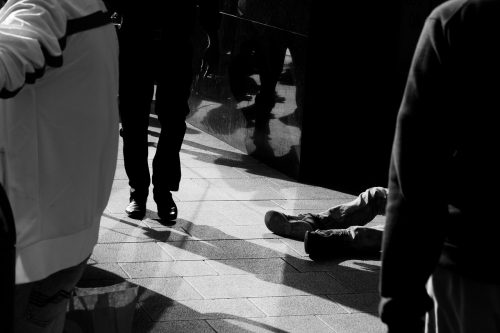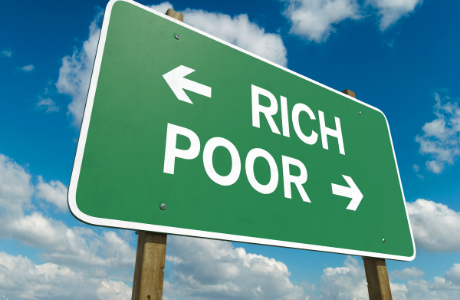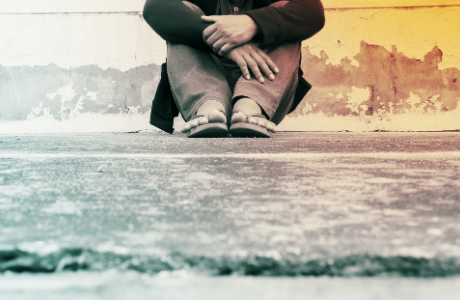In this blog, I’m continuing from last week’s discussion on the issues that are most important to you. A survey of my Facebook friends revealed that matters of justice, particularly for asylum seekers and the homeless, ranked at the very top of their concerns. [i]
The third concern was equality – or at least the lack of justice we often see in the world around us. Inequality features highly for asylum seekers and the homeless, but it also ranks as a big issue for Australia’s indigenous people, along with victims of abuse, trafficking and domestic violence. There is high inequality between those who have access to clean water and those who don’t; and the poor and weak are frequently oppressed by the rich and powerful.
Right now 844 million people in the world – one in ten – do not have clean water. 2.3 billion people in the world – one in three – do not have a decent toilet. There are 289,000 children under 5 die each year due to diarrheal diseases caused by poor water and sanitation. [ii] Inequality for Australia’s indigenous people is massive compared to the rest of Australians,[iii] and there are over 30 million trafficked people in the world; half are children, and 80% are female.
Equality, or the lack thereof, is a constant theme throughout the Bible even though some of the earlier comments made in books like Leviticus look like anything but equality. It’s of vital importance that we understand the progressive and changing nature of God’s revelation through Scripture. Reading through the book of Leviticus from a 2017 western perspective can be quite daunting. There are instructions on how much to pay for slaves and how to treat women. Some of these commands boggle our minds and we can easily wonder at the inequality reflected in what we read.
But when you understand that these things were written 3,500 years ago to an ancient Middle Eastern culture that had very few, if any, written rules, we get a different perspective. In some instances, this was the first time written regulations gave slaves and women any sense of equal treatment. Until then, they were considered a man’s goods and chattel. Leviticus was quite revolutionary in its day. It upheld human rights for disabled people (19:14), refugees (19:33-34) and the elderly (19:32).
Many of the prophets spoke out with a great condemnation against the wealthy and powerful that oppressed the poor and weak. Consider Isaiah 1:17, “Learn to do right; seek justice. Defend the oppressed (correct the oppressor). Take up the cause of the fatherless; plead the case of the widow.” The prophet Micah summarised the importance of equality and justice like this: “what does the Lord require of you except to be just, and to love and to diligently practice kindness and compassion” (6:8).
Jesus’ teaching and actions continued this revelation. He reached out to people that others (particularly the religious) would have nothing to do with – such as lepers, the unclean, the sexually immoral and the mentally ill. The New Testament Scriptures also break down walls that divided people and communities – racial, gender and economic barriers are non-existent in Christ, says Paul (Galatians 3:28).
There is no place in the Christian faith for expressions of inequality because of differences in gender, race, creed or money.
On one occasion the Apostle Paul met with the other apostles in Jerusalem. The outcome of the discussion was agreement that Paul and his team would continue to reach out to non-Jews with the gospel message. Paul writes, “All they asked was that we should continue to remember the poor, the very thing I had been eager to do all along.” The apostle took this seriously and, everywhere he went, he received offerings to relieve poverty. His stated goal was equality (see 2 Corinthians 8:13-14).
It’s interesting that amongst all the things the Jerusalem church leaders could have highlighted as the one most important thing that should accompany the gospel message, it was equality for the poor.
And equality for all people should still accompany the gospel of Jesus. It saddens me when I hear a non-equal message preached by people who identify as Christian. Their lack of equality contradicts all that Jesus stands for and, in the process, repels people from Him. Justice and fairness for all must always be part of the real gospel of Jesus. That’s why it’s such good news!
”Let justice roll on like a river, righteousness like a never-failing stream” – Amos 5:24.
[i] Blog: Is justice an optional extra
[ii] http://www.wateraid.org/au/what-we-do/the-crisis/statistics
[iii] http://www.australianstogether.org.au/stories/detail/the-gap-indigenous-disadvantage-in-australia





